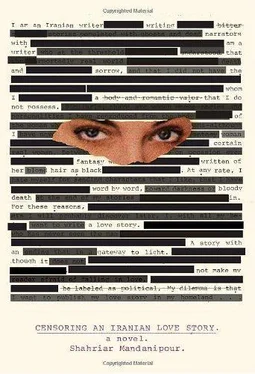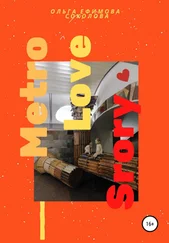If I remember correctly, a few years later, Sara and Dara completely disappeared from textbooks, and another girl and boy replaced them— siblings with no recollection of the Shah’s corrupt and tyrannical regime … Now I think you have come to understand that selecting the names Sara and Dara is an Iranian storytelling trick. Without giving Mr. Petrovich an excuse to chastise me, they will remind my Iranian reader of the appearance and disappearance of Sara and Dara from textbooks, rather like Mr. Clementis, a persona non grata whom Soviet censors airbrushed out of a photograph, yet the hat he had lent to a man posing with him remained on that person’s head.
By the time Sara and Dara were being transformed, my daughter was in first grade, and there were nights when my powers would fail and I could not come up with a new story to tell her. I had therefore bought her storybooks with tales that were better than mine because they came with illustrations. One night when I opened Snow White and the Seven Dwarfs to read to her, I saw to my horror that Snow White was wearing a headscarf and two thick black lines were covering her bare arms. My little girl asked:
“Why aren’t you reading?”
I closed the book and said:
“We don’t have a story tonight. Sleep so that you will have a beautiful dream, my girl … Sleep, Bãrãn.”
We called our daughter Bãrãn at home. But her name in her birth certificate is something that neither I nor her mother intended to name our daughter. Hence, the name Bãrãn too has a story, which I will tell you another night. Now, with your permission, I must return to my love story:
Ask me, given that an encounter between a man and a woman is so unlikely in Iran, how do Sara and Dara meet?
As I said before, although Sara and Dara come face-to-face for the first time on the fringes of the students’ political demonstration, they had in fact started writing their love story a year earlier. And this is the story that I now want to tell you:
Sara is studying Iranian literature at Tehran University. However, in compliance with an unwritten law, teaching contemporary Iranian literature is forbidden in Iranian schools and universities. Like all other students, Sara has to memorize hundreds of verses of poetry and the biography of poets who died a thousand, seven hundred, four hundred … years ago. Even so, Sara likes contemporary Iranian literature because it stimulates her imagination.
This literature creates scenes and words in her mind that she has never dared imagine or utter, and of course, this literature too has not dared write those words and scenes openly and explicitly. In fact, when Sara reads a contemporary story, she reads the white between the lines, and wherever a sentence is left incomplete and ends with three dots like this “ …,” her mind grows very active and begins to imagine what the eliminated words may be. At times, her imagination goes farther and grows more naked than the words the writer had in mind. If she is as clever as an intelligence agent and has the power to decipher the codes that lie in the shadows of the petrified phrases and in the hidden whispers of the conservative words of Iran’s contemporary literature, she will find the very things she likes. Sara loves these three dots because they allow her to be a writer, too … But she never borrows any contemporary literature from her college library or the central library of Tehran University. Even if she wanted to, I don’t think she would find any books by writers such as me.
Ask me why, so that I can explain:
I hope in countries where people are proud of their democracies and live confident of a secure future, no one ever has to worry about the books they borrow from a library. I pray that whenever they want, without fear of the future, they can at least read The Jungle by Upton Sinclair or the dull and artless The Iron Heel, a bad work by a relatively good writer who drank too much whiskey and wanted to replace American democracy with Animal Farm democracy.
As I was saying, we Iranians, having lived under the dictatorial rule of kings for twenty-five hundred years, have expertly learned that we should never leave any records or documents behind. We are forever fearful that the future will bear even harsher political circumstances, and hence we must be extremely vigilant about our lives and the footprints that linger in our wake. It is for this reason that records of our history are often limited to the travelogues of Westerners and reports by Western spies. Sara knows that the circulation system at Tehran University’s library is computerized and that any book she borrows can someday be used as evidence against her and she could be expelled. Of course, circumstances in my dear Iran still allow a few crumbs of freedom, but Sara prefers to borrow her favorite books from a public library and has become a member of the one in her neighborhood. Exactly a year before the political demonstration I told you about, on a spring day — and in most old Iranian love stories there is a beautiful spring day with the song of nightingales and other pleasant-sounding birds resonating from sentences — Sara appears at the public library. The small reading room in this library has been divided into two sections by the library catalogs so that the boys and girls seated at the tables cannot see each other.
Now you probably want to ask, What are the boys and girls supposed to do if they need to discuss a school assignment or exchange ideas?
If you ask one more question like this, I will be forced to say:
Madam! Sir! Why can’t you imagine any culture other than your own? What kind of a question is this? Clearly girls and boys in Iran have no school-related discussions and no need to exchange educational information. Like everywhere else in the world, discussing Derrida’s “Différance,” debating the Planck wall or the chaos theory and the butterfly effect, are consciously or unconsciously excuses for a girl and a boy to establish a private relationship that will end in sin. For this very reason, if they speak to one another on university grounds, they will receive a written warning from the Disciplinary Committee. They are not only prohibited from talking to one another in libraries, but they cannot even climb over the Planck wall with the language of their eyes to exchange information … So please let me continue with my story.
Sara walked toward the librarian’s desk … With this sentence the love story I want to write and hand over to Mr. Petrovich continues.
Sara asked the librarian:
“Do you have The Blind Owl ?”
The librarian firmly replied:
“No, miss. We don’t have The Blind Owl at this library.”
Sara did not give up.
“Of course I know you don’t have The Blind Owl on the shelves. I meant if it is among the books you have removed from the shelves, could you make an exception and lend it to me for a few days … I study literature and I have to read The Blind Owl for an important project.”
The librarian, this time more sternly, said:
“Miss! I told you we don’t have these banned books; and by the way, you’re the idiot, not me. I know there is no way they would give you a project on The Blind Owl at the university.”
Sara, having given up on getting her hands on a copy of The Blind Owl, walked out of the public library. She didn’t notice that in her wake a young man walked out from the protected men’s section and at some distance followed her all the way home. Consequently, the next day when she saw the same young man near her house, she did not recognize him. The young man was selling used books, which he had laid out on a few sheets of newspaper spread on the sidewalk. Surely the paperback edition of The Blind Owl was among his books. But Sara, proud of her beauty and accustomed to ignoring the people around her, walked to the university without stopping. The neighborhood butcher was skinning a green baby dragon hanging on a hook suspended from the ceiling …
Читать дальше












